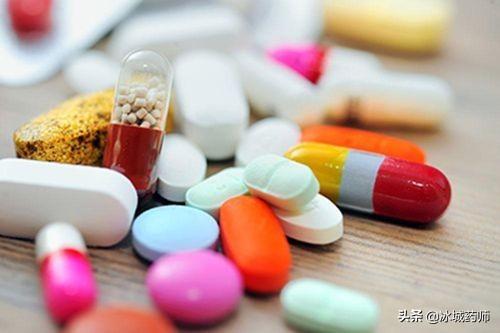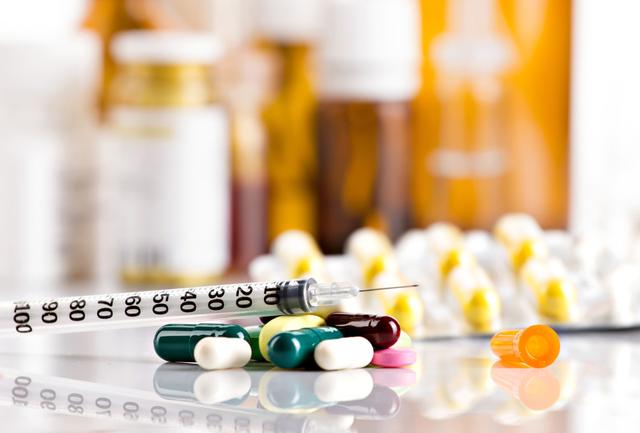Do diabetics who take prolonged prosecretory drugs have a depleting effect on their own pancreatic secretion?
Thanks for the invitation. Diabetes mellitus refers to a metabolic disorder in which blood glucose rises due to a decrease in the quantity and quality of insulin. For many diabetic patients, medications that promote insulin secretion have become common for lowering blood glucose. It is a class of drugs that is divided into three main categories: sulfonylureas, glinides, and dipeptidyl peptidase-4 inhibitors. Although all can promote insulin secretion, the mechanism of action is different.
From the point of view of clinical efficacy, the use of insulinotropic agents effective must have a prerequisite, that is, the insulin-secreting organ pancreatic islets still have the function of insulin secretion, otherwise, necessarily ineffective! In other words, when would you use an insulinotropic agent? When the pancreas can secrete insulin, but the quantity of insulin secreted is insufficient or the quality of insulin has declined, and insulin secretion must be increased.
From the clinical process, taking the urology blood sugar changes are often divided into three periods, the first period for the sweet period, manifested in taking before the blood sugar is very high, but take the drug after the blood sugar drop significantly, at this time, the patient must be very happy; the second period for the pain period, the performance of this period for the patient's blood sugar is high and low, and sometimes the blood sugar is very high, and sometimes very low; the third period for the period of despair, the period of blood glucose The third period is the period of despair, during which the blood sugar is only high but not low, in other words, the use of lactation enhancers is ineffective! This indicates that the patient's pancreatic islet function has failed.
Clinical studies have also found that, for type 2 diabetes, the failure rate for taking prokinetics is about 5-10% per year. Because of this, a whole new concept has been proposed in recent years in academia:Beta cell restIt refers to resting the β-cells by means of inhibiting their secretion or reducing their secretory pressure. It refers to the means of inhibiting β-cell secretion or reducing the pressure of β-cell secretion to make β-cells rest, thus promoting the recovery of β-cell function in order to achieve the effect of slowing down the progression of the natural course of diabetes mellitus and stabilizing diabetes mellitus.
How do you rest beta cells? Definitely not by using a pro-lactant! The best way is low carb diet. About how to implement a low carb diet you can follow my headline - Li Feng, Jiangsu Provincial Cancer Hospital, for a detailed introduction. The above is my answer.
This question is broken down into 2 parts to answer, first of all, we come to understand the lactogenic drugs refers to which hypoglycemic drugs, mainly including two categories, sulfonylureas and glinides, sulfonylureas lactogenic agents include shorter half-life short-acting lactogenic agents Glipizide, Gliquidone and longer half-life medium-long-acting lactogenic agents Glibenclamide, Glyburide, Gliclazide delayed-release tablets and Glypyrazine controlled-release tablets. Glargine-based urogens have shorter half-lives and are short-acting urogens.
Why is it called a glucagon, as the name suggests, is to promote the pancreatic islet cells secretion of insulin preparations, that to be able to play this role in promoting the premise is that the pancreatic islet cells must be able to secretion of insulin, that is to say, pancreatic islet cells have a certain degree of secretion of the function of the pancreatic islet function does not have the secretion of insulin, it will not play a role. So insulinotropic agents are only suitable for islet cells that have secretion function, but are missing or have incomplete secretion, so they need to be promoted to further secretion.
Secondly, what is insulin depletion, that is, insulin has no function anymore, could the pancreas be deficient in function due to the long-term application of drugs that promote insulin secretion, the answer is no.
The reasons are as follows:
1, no matter what kind of pro-cellular agents, their mechanism of action is through the specific binding of sulfonylureas on the B-cell membrane, so that the potassium channel is closed, the intracellular K ions outflow, the intracellular concentration of K ions increased, calcium ions inward flow, the intracellular concentration is also increased, thus stimulating the secretion of insulin particles to the extracellular secretion to play a role in lowering blood glucose.In terms of mechanism of action, it is dependent on the channel pathway of potassium ions and does not impair B cell function.
2. the place of insulinotropic agents in the treatment of type 2 diabetes:
Studies have shown that in patients with increased fasting glucose levels, the decrease in insulin secretory function will be more pronounced than the decrease in insulin sensitivity and will be longer in patients with a body mass index of less than 24/kg/m2, so there should be more concern about the effect of abnormal islet cell secretory function on hyperglycemia.
3, so that the function of pancreatic islet cells to be further "breaks".In recent years, we have advocated intensive insulin therapy, and for some patients with very high new-onset glucose levels, a four-needle intensive or insulin pump regimen is usually required to replace the insulin secreted by the pancreatic islet cells and to allow them to rest accordingly to restore their function, and the same is true for the prokinetic agents as well.
In short, every hypoglycemic drug has its advantages and disadvantages, we can not say that lactation enhancers are good or bad, only suitable for a particular patient, as to whether it will be pancreatic cell exhaustion, have not yet seen the relevant research. Each drug has its pros and cons, and what's right for you is right.

When diabetic patients through diet and exercise therapy, blood sugar can not fall to normal, the doctor will usually give the patient to use oral hypoglycemic drugs, in addition to metformin is the preferred first-line hypoglycemic drugs, lactation promoter is the most commonly used class of drugs. I believe that diabetic patients are not unfamiliar with this type of drug.
Glucagon is an insulinotropic agent, literally, of course, a class of drugs that promotes the secretion of insulin, which is the only glucose-lowering substance in the body, and when this type of drug is used, the amount of insulin in the body may increase, and it will exert a glucose-lowering effect.
There are two classes of drugs commonly used clinically as prokinetic agents: sulfonylurea insulinotropic agents and non-sulfonylurea insulinotropic agents.
Sulfonylurea insulinotropic agents
Diabetic patients are more familiar with glibenclamide, glipizide, gliclazide, gliquidone, glimepiride and other drugs are sulfonylurea insulinotropic agents, thirst-quenching pills in the main role of sugar-lowering drugs are also sulfonylureas, for glibenclamide. The action of these drugs is long and short, the number of times a day to take 1-3 times, required to take half an hour before meals in order to play a better role in lowering sugar.
Non-sulfonylurea insulinotropic agents
Non-sulfonylurea insulinotropic agents mainly include drugs such as Repaglinide and Nateglinide. The action time of these drugs is generally shorter, faster acting, can play a good role in reducing postprandial blood glucose, usually taken before meals or 15 minutes before meals.
Mechanism of action of prokinetics
Insulinotropic drugs secrete insulin by stimulating insulin secretion from pancreatic B cells, which bind to specific receptors on the surface of pancreatic B cells and inhibit the cell membrane ATP-sensitive potassium ion channels, causing them to close. As the intracellular potassium ion concentration rises, there is depolarization of the cell membrane, opening of membrane voltage-dependent calcium channels, entry of extracellular calcium ions into the cell, and an increase in B-cell calcium ion concentration and stimulation of insulin secretion.
It can be seen that the hypoglycemic effect of these drugs depends on the number of B cells that are still functioning in the pancreatic islets, which must be at least 30% for these drugs to exert some hypoglycemic effect.
Proliferators need to stimulate pancreatic islet B cells to secrete insulin and play a better role in lowering glucose. But for those patients with poor pancreatic islet function, we have a more common and figurative analogy in the clinic, which is called "whipping a sick cow", that is, pancreatic islet function is a "cow", the cow is already sick and tired, and you use the whip (促泌剂) to whip it, of course, the cow will go faster (blood glucose will drop), but after all, the sick cow is very tired, and will soon be able to lower the glucose. Of course, the cow will go faster (blood glucose will fall), but after all, the sick cow is very tired, soon will not go (no longer secrete insulin), then this time the insulin agonist will lead to as soon as possible islet cell failure, and from now on insulin agonist drugs are no longer sensitive, and from then on these drugs no longer have a role in lowering glucose, the need for long-term insulin therapy.
The therapeutic measure at this point is that we need to help, so that this sick cow saves some energy, regains a little bit of gas, the islet function improves, and the insulinotropic agents work better.
When the patient's blood sugar is relatively high, less sensitive to the action of glucagon, and the effect of lowering glucose will not be too good, the doctor usually choose insulin and other drugs first to lower the blood sugar, and then choose insulin glucagon for long-term maintenance treatment of the drug.
To summarize:
Insulinotropic agents are the more commonly used glucose-lowering drugs in clinical practice and rely on the function of the pancreatic islets that remain in the body.
Prokinetic agents do not work well in patients with poorer islet function, and insulin prokinetic agents are not recommended in this state; insulin can be used to rest and restore islet function.
Prolactin can have an effect on the function of the pancreas in the body, and patients using prolactin should undergo regular checkups of pancreatic islet function.
I'm Dr. Sun, pay attention to Dr. Sun talk about sugar, continue to learn more quality health knowledge, help please like, have questions please leave a message, will reply!
There are definitely effects. Long term behaviors all have an effect on how the body functions. Just like not exercising for a long period of time can cause muscle relaxation, smoking and drinking for a long period of time can lead to addiction, and so on. How can long-term drug use not have an effect? It doesn't fit the basic laws of life. The question is: is there a way to replace the drug, and if not, then we have to face the reality. Just like a bedridden patient, even if you know that being always bedridden makes motor function weaker, so what? So, it's better to analyze it specifically for your condition.
Definitely, so be careful when taking hypoglycemic drugs, see to understand its hypoglycemic pharmacology, recommend two drugs: one is Bayglopin, which is to stop the conversion of starch into sugar after meals; the other is Dagliflozin, which is to excrete the sugar in the glomeruli out of the urine.
Diabetes is divided into two types, insulin-dependent and non-insulin-dependent, that is, type 1 and type 2, the majority of people are type 2 diabetes, the number of diabetic patients in China is more than 100 million, accounting for about thirteen percent of the total number of people, and there are more than 100 million reserves, quite huge, diabetes is a sugar, protein and fat metabolism disorder, the performance is high blood sugar, the main symptom is more drinking, more food, more urination, emaciation, three more and one less, in ancient times called thirst disease, more than two thousand years before the West, how great our ancestors. The main symptom is more drinking, more eating, more urinating and less weight loss, three more and one less, which is called thirst disease in ancient times, more than two thousand years earlier than the West, how great our ancestors are.
Insulinotropic drugs are used in patients with type 2 diabetes mellitus, mainly due to insufficient insulin secretion or decreased binding ability of insulin to the receptor. Divided into direct stimulants and indirect stimulants, sulfonylureas such as glibenclamide, high efficiency and long-lasting glimepiride, its discovery there is a story it, in the 1940s, a large number of applications of sulfonamides in the treatment of typhus, there are many unexplained deaths, and then further research found to be the consumption of sulfonamides, stimulating the release of insulin, leading to hypoglycemia death, and then scientists through the Then scientists, after continuous efforts to explore the structural modification, developed the current sulfonylurea drugs, to benefit mankind. The mechanism of action is to stimulate insulin b-cells to release insulin, blocking the potassium channel so that calcium ions inward flow, leading to b-cell secretion of insulin, but also produce insulin resistance, leading to a decline in the efficacy of the resistance, the patient began to use the blood glucose control satisfied, and then lead to secondary failure, and finally change the drug to eat, control of glucose can not be completely dependent on the drug, but also the patient's health education, keep your mouth open and keep a good mindset, to prevent the emergence of complications. Complications. Prevention is better than cure.
It depends on the patient, if thinner type 2 diabetes is more suitable for use, the impact will be less.
Follow me to share more health knowledge
This question and answer are from the site users, does not represent the position of the site, such as infringement, please contact the administrator to delete.